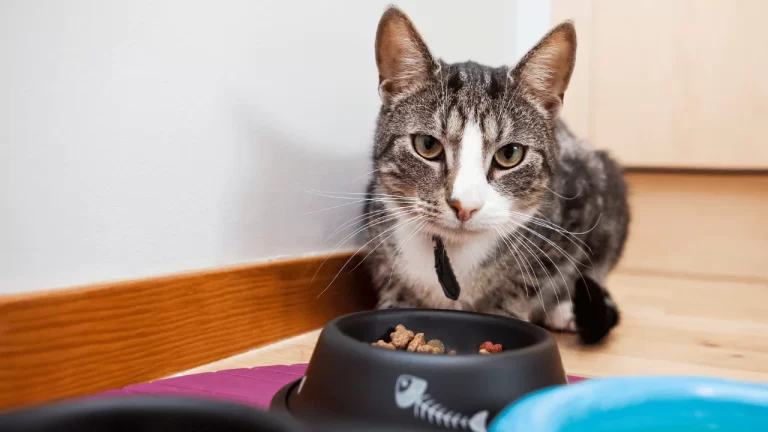No, it is generally not recommended to mix cat food with milk. While milk may seem like a natural addition to cat food, it can cause digestive upset and nutritional imbalances in cats. Both kittens and adult cats typically do better-consuming cat food as directed by the manufacturer and avoiding added milk.
Is it Safe to Mix Cat Food with Milk?
Considerations for Kittens and Adult Cats
Kittens have different nutritional needs than adult cats, but neither kittens nor adults should consume cat food mixed with cow’s milk. Kittens need a diet higher in calories, fat, protein, vitamins, and minerals to support growth and development. While milk contains fat and protein, it does not provide the complete nutrition kittens require. Adult cats, on the other hand, need fewer calories and lower fat. Adding milk introduces unnecessary calories and fat into their diet.
Potential Digestive Issues
One of the biggest concerns with mixing cat food and milk is potential digestive upset. Many cats are lactose intolerant, meaning they lack the enzyme needed to properly digest lactose, the natural sugar found in milk. Consuming milk can cause diarrhea, gas, bloating, vomiting, and other signs of digestive disturbance in lactose-intolerant cats. Even cats who aren’t lactose intolerant may experience stomach upset from the high-fat content of milk when coupled with cat food.
Nutritional Imbalance
Cat food is carefully formulated to meet all of a cat’s nutritional needs for complete and balanced nutrition. Adding milk dilutes these balanced nutrients and makes it difficult for cats to maintain proper nutrition. Milk also contains lower bioavailability of many nutrients compared to what is found in cat food. The high calcium and phosphorus content of milk can prevent the proper absorption of essential minerals like iron, zinc, and magnesium when mixed with cat food.
Alternatives to Mixing Cat Food with Milk
Rather than pouring milk over cat food, there are healthier ways to enhance your cat’s diet including:
Providing Fresh Water
Make sure clean, fresh water is always available. Dehydration is a serious health risk for cats. Dry kibble contains very little moisture, so cats need ample water to stay hydrated. Adding milk to cat food may decrease your cat’s normal water consumption.
Offering Wet Cat Food
Wet or canned cat food typically contains much higher moisture levels than dry food. Feeding a combination of wet and dry food is an excellent way to increase water intake for cats. Wet food also contains more animal protein than plant-based dry food.
Incorporating Milk Replacers
If you want to provide an occasional milk-like treat, look for commercial cat milk replacements. These are formulated to provide a creamy liquid treat that is lactose-free and nutritionally balanced for cats. Some options include bone broth, goat milk, or probiotic cat milk.
How to Properly Feed Your Cat?
To keep your cat healthy and avoid GI issues, follow these tips:
Consult with a Veterinarian
Discuss your cat’s diet and any concerns with your veterinarian. Get your vet’s advice on appropriate food types, portion sizes, and supplements based on your cat’s age, activity level, and health status. Follow any prescription diet recommendations if your cat has a specific medical condition.
Follow Feeding Guidelines
Read all labels carefully and follow the feeding guidelines on cat food packages. Portion out the recommended amounts at the suggested feeding times each day. Make gradual food transitions over 5-7 days when switching formulas.
Monitor Your Cat’s Health and Digestive System
Weigh your cat regularly and monitor for any concerning symptoms like changes in appetite, weight loss, constipation, diarrhea, vomiting, or excessive hairballs. Report any gastric issues promptly to a vet. Monitoring litter box habits can help catch signs of digestive upset early.
In summary, it is best to avoid mixing cat food and milk. Feed a nutritionally balanced cat food diet with plenty of clean water instead. Check with your vet if you have questions about appropriate options for your cat based on their age and health status. With a proper diet free of milk, your cat is likely to have better digestive health and nutrition.







